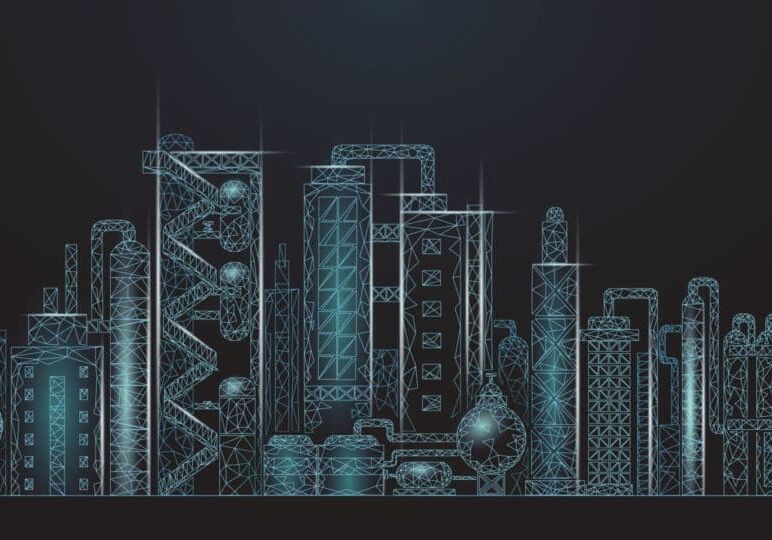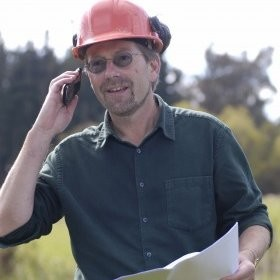Driving change across the downstream industry

Exclusive Interview with Andy Saunders-Tack, Director, Asia-Pacific and Mel Larson, Strategic Consulting Manager at Becht
The coup in Myanmar may be pivotal for the energy markets. The building of a pipeline through Myanmar allows both crude and product to shortcut the shipping lanes of the Malacca Straits. Add to this the growing tensions in the South China Sea and one can see an “argument” of protectionism arising that pinches off the entire South East Asian region from the wider Asian continent. The impact to Singapore in the next decade will be potentially significant.
What are Asian regional governments, and operators, willing to do to ensure they are not tied to a single source? Andy Saunders-Tack, Director, Asia-Pacific and Mel Larson, Strategic Consulting Manager at Becht, share their insights on what operational resilience means in the next normal, and navigating global success in an era of deglobalisation.
What are the main drivers influencing change across the future of the downstream industry?
Global warming or climate change that “demands” action in lowering greenhouse gas emissions is a primary driver. This is leading to an energy transition that has been magnified by the lockdown resulting from COVID-19 in the short term.
There is, and will continue to be, a global demand shift, as well as supplier shift in meeting future demand. The challenge is time and concepts to achieve a “net zero” which does not necessarily mean stopping CO2 emissions as bio fuels will emit CO2 but at a different rate and growth profile.
Lower demand for transportation fuel will change the way refiners operate.
What will be the key priority for operators to ensure survival and commercial success in the post-pandemic era?
Planning that can yield both quick wins across all areas – eg, feedstocks, operations and maintenance, while analyzing the forward market to make focused capital investment to match the shift into renewables or bio sourced energy. There must be the recognition that overall, energy demand is increasing. Thus, it is a change in source of energy that is driving change in RPI (refining and petrochemicals integration), which is vital for commercial success. All those standalone (non-integrated) refineries will be hit the hardest and will need investment for RPI or change in processing options to produce alternative fuel.
What is the biggest challenge for traditional refineries making the shift to petrochemicals?
The biggest challenge is cost and attracting capital investments. Petrochemical development requires long term demand with critical mass of fuels refining nearby to manage the balance of demand. The concept of crude to chemicals has a nice conceptual tone but it is expensive with current technology to crack the molecules to the petrochemical precursors.
The climate change discussion is also shifting emphasis to recycling and not first-generation production. Creating a robust business strategy shall require the inclusion of recycling with first generation production that has the flexibility to respond to a changing landscape as technologies evolve and demand profiles shift.
Where do you see long-term opportunities in the oil & gas sector?
Oil and gas is here to stay in the medium term – opportunities are multiple but all centre on approaches to optimize feedstock and products whilst decarbonizing the value chain. The long-term play is more in the petrochemical front that will be impacted by innovation for recycling efforts.
How would you define operational resilience, and why is it a critical focus for the downstream sector?
The issue is first to understand oil is not being shut off tomorrow. The demand will be here through 2050. The focus in downstream is first on energy efficiency providing a product with the “lowest” economical carbon footprint possible. Operational resilience will include innovation and thinking “away” from historical patterns and taking more risk to meet the forward demands. Strategic business planning will need to consider emissions as a “cost” such as carbon tax or GHG (greenhouse gas) tax . These will drive changes in hardware to meet the forward demand.
It is the ability to be able to pull on multiple levers that address strategic business planning and operational excellence. Shifts must include the ability to attract capital. Governments must be careful not to tip the scales in favor of one energy system or other. The extent to which systems are exposed to free markets will allow for innovation that ensures the “best” outcomes are possible.
The ability to be flexible in operating in various modes safely, taking into account various constraints is important. Looking to other system usages like co-generation, recycling, or other applications will be part of the solution.
How can new technologies and new software help measure and improve resilience and maximise operational efficiency?
New software will probably not help as much as people want to believe. Digital twins, real time optimisation and AI may offer some good benefits in the short term. New technologies only change the molecular management efficiency from start to finish. Those “new” technologies that are perhaps less carbon intense are most interesting. Innovations that address carbon or GHG capture could be revolutionary.
How have/can operators use(d) innovation to improve reliability and safety?
Better use of data for predictive purposes will be key here. On-stream non-intrusive inspection combined with improved predictive methodologies and holistic monitoring to support flexible operation will drive operational excellence. AI will be important but we caution against over-reliance on this. Developers are not operators and don’t always fully understand the nuances of the real world they are programing into. A combination of SMEs/operators, AI and mathematicians will be a game changer in the way we operate our assets.
With oil & gas and industrial revenues declining due to the pandemic, how can downstream business leaders build resilience on a finite budget?
First the revenue losses are not purely from the pandemic. As demand fell, OPEC flooded the market, hammering crude prices further, and creating a massive glut. On the first round everyone thought it would be a short period – 6 months – followed by a rebound, so they kept pumping. Then storage filled and the situation worsened dramatically. So be careful to note that crude glut contributed massively to price shifts.
Downstream leaders should engage qualified “outsiders” to assist in gap assessment of the plant. They should be bold and willing to allow a “critical” eye to examine all aspects of the system: organization, operations, marketing, energy etc. No stone should remain unturned to find those areas of opportunity to capture value. They should seek the quick wins but not lose sight of the longer term picture and start planning now.
No revenue is gained if the plant is not running, so reviewing and improving plant reliability and integrity is critical. When the economy becomes more favourable, the plant can then use its maximised reliably to improve margins. It is also important to look forward to the “next” generation so that knowledge transfer and value is maintained and sustained.
How can traditional oil and gas operators decarbonise their supply chain?
The supply chain is a major challenge. Decarbonizing the supply chain suggests that the feedstock has less carbon and more hydrogen, thus lower cost to finished product. However, sweet feeds are more expensive than heavy sours.
Profit is required, thus it’s a balance of the right feed to the right product distribution. One aspect is to look more to bio-renewable sources like biomass, rapeseed, soybean or used vegetable oils to supplement fossil fuel content. Clearly the broader socio-economic impact of utilising these feeds must be considered (eg. food supply and economics).
Next is energy efficiency – In reality, decarbonisation is only possible on the margins for oil and gas. The big step will be effectively to become an electric utility.
One of the biggest challenges the market faces is equipping the workforce to adapt to the pace of digitalization. How can operators empower their workforce to adapt to the digitalization strategies needed to survive and thrive in the new normal?
- Retraining and development programs
- Use of specialist consultants to train and mentor staff
- Make better use across the economic landscape of specialist expertise and experience
Is the hydrogen economy an integral part of the downstream future, and what does this mean for the future of fossil fuels?
Hydrogen is certainly part of the future. One has to be careful to consider the whole energy equation to make hydrogen, add it to something, transport it, and then consume it. Consider the following for the SMR + CCUS is about 8 MW / tonne of hydrogen. To make the same amount of green hydrogen via electrolysis is 55 MW / tonne. Regardless of the electrical source this is a 6x increase in raw power demand that only makes the flywheel run faster and harder. Instead, consider bypassing the electrolysis step and simply making 55 MW to put in the grid for EVs.
What are the major challenges in developing green hydrogen as a main fuel source?
Scale and efficiency to give viable economics and power demand that could go direct to the grid vs hydrogen. Land usage will become a major factor for wind and solar along with logistics and infrastructure.
What are the key factors making renewables a more accessible and affordable energy source?
The central issue is funding that is not well defined moving away from multiple sources to single source along with security, adoption by the consumer and convenience. Within this framework is revenue capture. Today, fossil fuels are generally taxed by country or local governments for income, thus making it a consumption driven element. Moving away from fossil fuels makes it a utility. [There are] fewer utilities and [they are] nearly 100% government controlled. The shift from diversity of supply to single source also concentrates power and money. For the upside of “clean air” there is a very real possibility of increasing the divide between socioeconomic groups. If we read history this increases conflict. The political and socio-economic consequences of this changing picture cannot be under-estimated.
What, in your opinion, will be the main factor shaping the next phase of the energy transition?
I am not sure there will be a focus – it is likely to be a very mixed bag.
The focus will be very different for each region. What works for the EU may never work for Asia culturally, or politically. One should not see a one size fits all. There are differences in population density, age, and growth profile. The next phase will be about finding out what works well and then deploying it more globally. The overall driver will be far more socialist in nature than capitalist (less free market). Global collaborations between government and private companies will become more common together with government incentive schemes across the value chain.
About Andy Saunders-Tack, Director, Asia-Pacific, Becht:

Dr Andy Saunders-Tack has a background in materials and corrosion and integrity management in the refinery, gas processing, LNG and petrochemicals sectors. He has spent the majority of his career based in the Asia-Pacific region with a number of specialist consultancy companies. He is a past regional manager for the Material Mechanical and Integrity Division of Shell’s Projects and Technology organisation in the East, based in Kuala Lumpur, and most recently was the Chief Engineer (Process) for Team Industrial Services and its subsidiary Quest Integrity.
In his current role as Asia-Pacific Managing Director for Becht, Andy has responsibility for Becht’s growing regional footprint, multidisciplinary subject matter experts and the clients they serve. He is also able to pursue his passion for all things “integrity” related, particularly as they relate to the challenges of a changing economic landscape and energy transition.
Mel Larson, Strategic Consulting Manager, Becht:

Mr. Larson has 40 years of domestic and international operations experience managing various projects and specialty consulting on Fluid Catalyst Cracking processes. His project management experience includes strategy analysis and due diligence of refinery and system wide modifications taking into account local and international market projections. His consulting services specialize in process troubleshooting and profit improvement analysis in the FCC, Unsaturates Gas Plant, Alkylation, and Naphtha Reformer areas.
Visit https://becht.com for more information.
Read more:
- ADNOC Signs Heads of Agreement with IndianOil for Ruwais LNG Project
- SABIC Opens Multi- Million-dollar ULTEM™ Resin Manufacturing Facility in Singapore to Meet Growing Demand in Asia-Pacific
- Predictive Analytics and IoT for Pumps
- Asian Downstream Summit, Asian Refining Technology Conference, Ammonia and Carbon Capture Asia 2024 Highlights Sustainable Solutions and Celebrates Key Individuals and Organisations
- Interview with Debjit Chandra, Global Technical Service Manager for Dorf Ketal